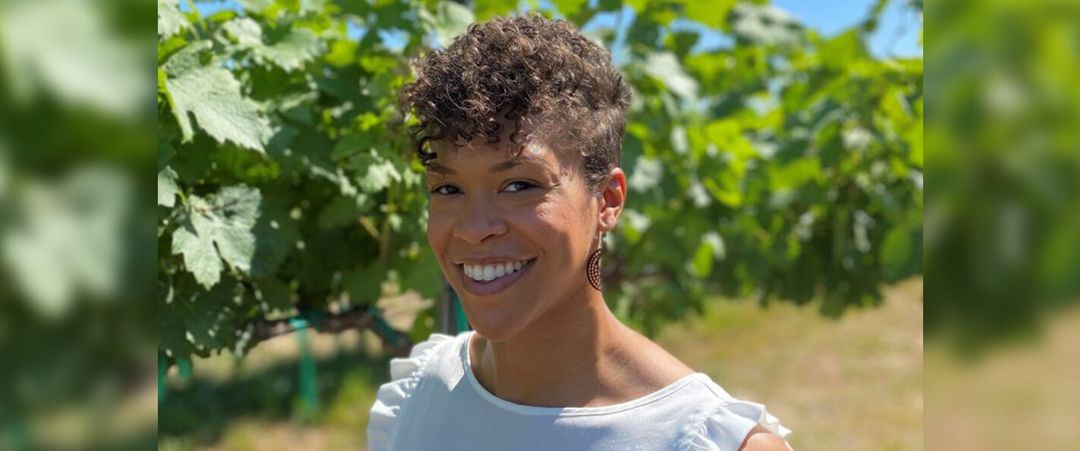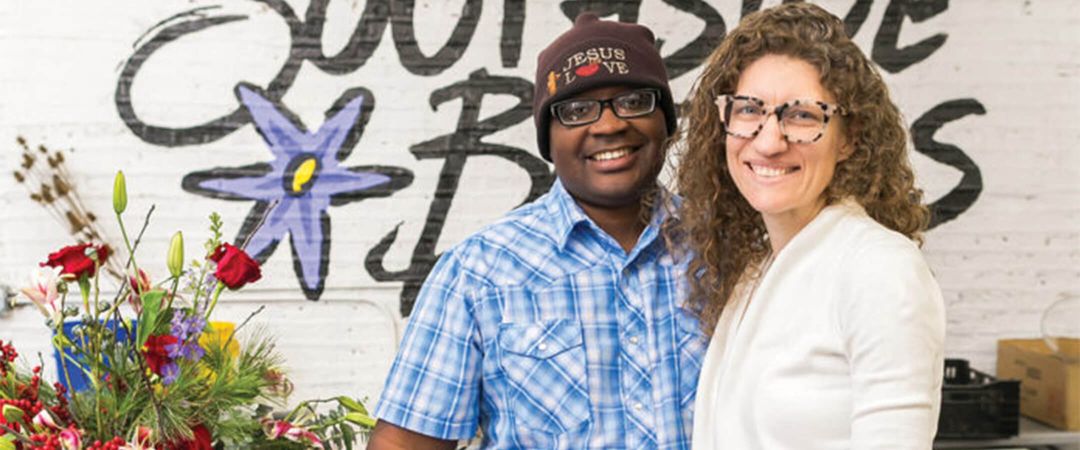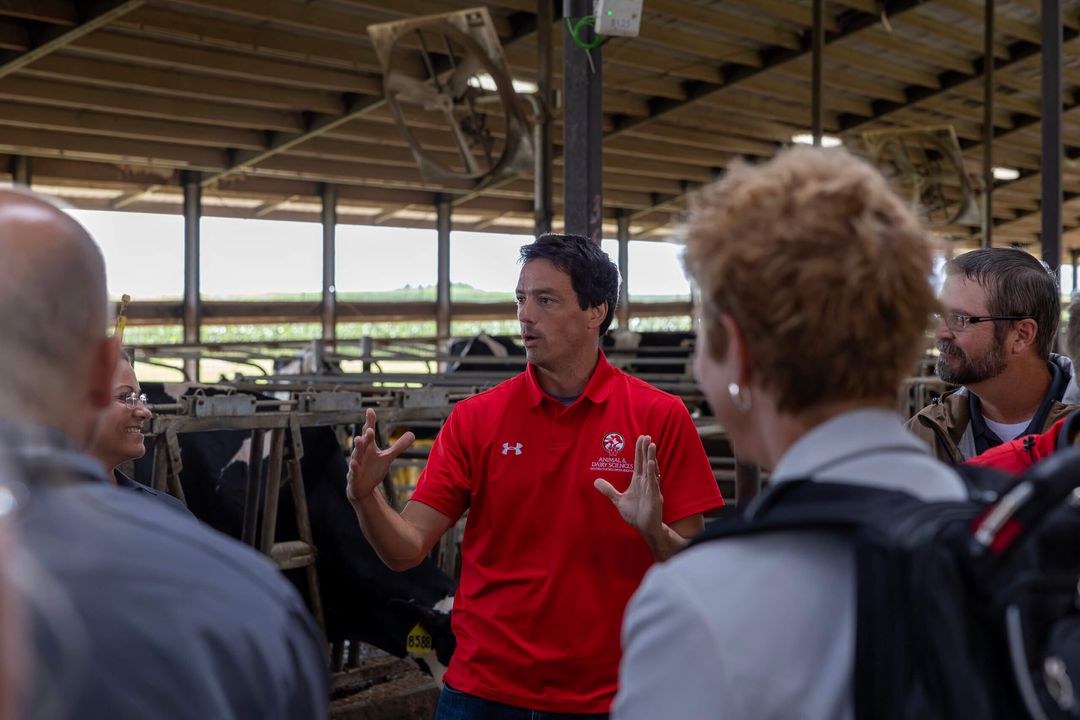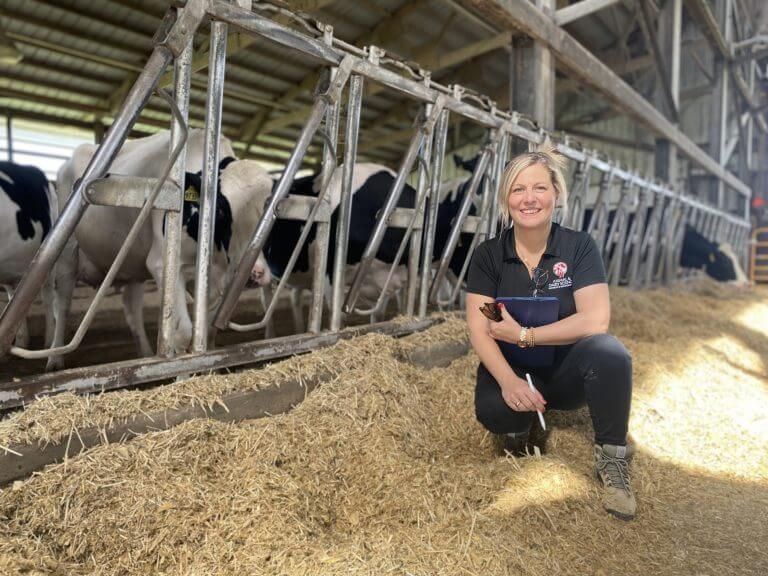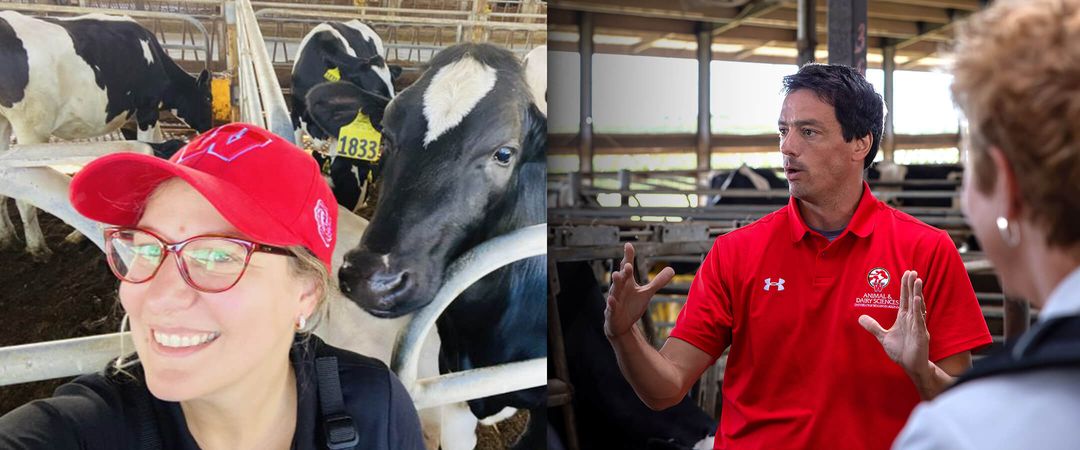Allow us to set the scene: the curtain opens on Cat Richmond MA’23, an aspiring singer in Canton, Georgia. Fresh out of high school, she has her sights set on Broadway and a career in musical theater. Enter: her parents, confident in their daughter’s musical talent, but wary about sending their 18-year-old straight to New York City.
“You also are such a strong writer, and you’re a strong academic,” they say. “Why don’t you look somewhere that has something to feed both passions?”
That search took Richmond around the world — from Georgia State University to the San Francisco Conservatory, from the Bach Archives in Leipzig to the University of Wisconsin, and from Madison to the Library of Congress — as she pursued auditions and education.
Her journey culminated in a job as the music ensemble librarian in the UW’s Mead Witter School of Music, which engaged her degrees in musicology, English, and library science, along with her expertise in musical performance and notation. Today, she’s the metadata librarian with the UW’s Digital Collections Center, where she manages an even more diverse and ever-growing digital archive.
Inherent to all of Richmond’s work — both as a librarian and as a performer — is her love of stories.
“I’m drawn to things that give me the opportunity to really act and tell the story,” she says. As a scholar, Richmond is especially attentive to the social and historical contexts of the stories she tells. “It’s always been an interest of mine to dig deeper, beyond just performing, into everything that goes into the creation of the music.”
Her musicological research explored the portrayal of rage in Mozart’s prima donnas (female leads), and as an opera singer, she relishes opportunities to give these iconic women, many of whom bear the stereotypes of the time in which they were written, new life on the contemporary stage.
“In opera, I consider performers more as the stewards of the history that they’re putting on stage,” Richmond says. “I’m interested in approaching these arts from a more feminist, reparative, and equitable perspective, and seeing that actually enacted on stage.”
Perhaps her most pivotal role thus far took place not under a spotlight, but behind the scenes. Shortly after completing her library science degree, Richmond was offered a fellowship with the Library of Congress in Washington, DC, where she helped digitize and create metadata for the copyright card catalog in the U.S. Copyright Office.
By fate or good fortune, her assigned portion was primarily foreign-language music between 1870 and 1977.
“I would never have thought that copyright cards [could be] thought of as a musicological tool, but they really can be,” she says. “They can trace different creations of a work.”
Richmond also considered what copyright cards could indicate about artistic agency, ownership, and representation at different moments in time.
“You saw some cards that just had an X where the name was. I want to know why that was. Was it because the person couldn’t write their own name?” she wonders. “[In] some of the writing, there are spelling errors. … Are there literacy implications here?”
Whether she’s tracing musical lineages in national archives, creating metadata for the UW’s, or honing her craft on stage, Richmond continues to shine a light on the stories behind the music that moves her.
“Doing these jobs, doing this research in all the topics that I’ve done, it just makes music that much more enriching,” Richmond says. “What it does for audiences, what it does as a performer, the stories you can share, the artists you support by just performing their music — it just is a very holistic view.”
